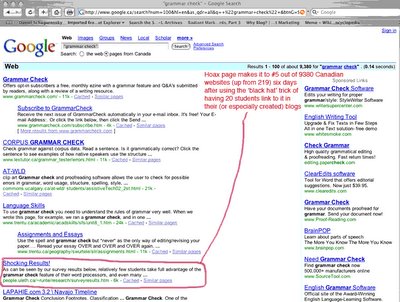When Levy says “The proposition that having the most simplistic, plastic stereotypes of female sexuality constantly reiterated throughout our culture somehow proves that we are sexually liberated and personally empowered has been offered to us, and we have accepted it,” she is not denying the transformative or revolutionary power of sex. Rather, she is arguing that we have settled, that the revolution has been co-opted by Hooters and Playboy and by accepting only one definition of sexual power women—and men—have accepted the easy way out. We have, as a culture, accepted the commodification of sexuality, allowed the most powerful evolutionary force to be drained of life, reduced to a package, and then sold to us in its least interesting form.
This is, of course, the most powerful tool that the power structure has for thwarting the reformist or revolutionary impulse; commodification. The women's movement of the sixties had a truly revolutionary agenda—from Gloria Steinem and Susan Brownmiller pointing out the (fatal?) contradictions of patriarchal society, to Susan Stern and her sisters pointing out that the revolution was not going to be male-dominated (Stern and her fellow Weatherwomen formed an assault unit during the Days of Rage. See her book With the Weathermen). The high water mark for the Women's movement crested and broke years ago, and the few hard-won victories of those years have been under attack since. One need only look at the statistics of women holding real power positions in any industry; the numbers have been stagnant for a decade, and have actually fallen in many areas. Even Roe vs. Wade has faced thirty years of challenges (If not for the underlying strength of the democratic ideal—that every person has rights, that laws support these rights, and that the legal system has primacy over political and cultural systems, Roe vs. Wade would have fallen years ago. Which is why the Canadian Charter of Rights and Freedoms is so important—and why the Fascist Right in this country hates it so. Because it means that Parliament is constrained in what laws it may pass, and that the laws it does pass are subject to judicial review. Sure, toss out gay marriage—the Supreme Court will force it back in. Just fucking get used to it assholes...).
How deeply this commodification of sex has penetrated the culture is laid bare in Levy's analysis of Girls Gone Wild and Sex and the City. In GGW, the reducio ad absurdum of existence is to show your tits—to act out, in other words, the most adolescent of concepts of sexual desirability; perpetual availability. But the stereotypes remain: men are perpetually ready/horny, and all that stands between us and paradise is having to convince a woman (any woman) to say yes. After which the woman can disappear until the next time one feels the need for (as Jack Douglas phrased it) “a convenient penis holster.”
Levy interviews women who have internalized this attitude towards sex—becoming, as it were, one of the boys (albeit penis-free). These are women who have bought into raunch culture seemingly whole-heartedly; attending strip clubs or adopting a “fuck 'em and forget 'em” attitude towards sexual encounters. But in discussion with one such woman, Levy finds herself hearing that this woman is not attracted to the men she meets, and doesn't really want to have sex with them. Levy continues; “Think about the underlying logic of that statement: She doesn't know why she doesn't want to have sex with someone she's not really attracted to. To her, this is a puzzle rather than a question answered. What Frailey [the interview subject] is articulating is our baseline assumption that sex is something you should automatically take when you can get it, something akin to, say, money. The more money, the more sex, the better, because these are things you accumulate to increase your status, your wealth of experience. “I want to get more notches on my belt,” as Annie [another interview subject] put it; “I want to get to a hundred.””
Which leads in nicely to Levy's deconstruction—however brief-- of Sex and the City, a show I confess I got hooked on over the last couple of years. Levy says that “little by little, the show became less about women having “sex like men” and more about the characters trying to negotiate their independence as they pursued intimacy with lovers, husbands, children, and each other. That's how the show grew and became so good.” Which would seem axiomatic; a good show is about compelling characters in a narrative arc, but somehow that still seems to be a revelation in entertainment circles....
But Sex and the City also reflected the zeitgeist in other ways, by what did—or, more importantly, by what did not—intrude or impinge on the lives of the characters. The world of Sex and the City is a very insular one; the real world seldom intrudes on it. As Levy puts it: “The ethos of the show was all about women getting themselves the best and the most, sexually and materially. They were unapologetically selfish, and civic-mindedness was scoffed at....The only time in the series Carrie was confronted with the prospect of doing something for charity, she dismissed the idea as ludicrous.”
In the world of Sex and the City, there is no poverty, no war, nothing but the occasional bother from other residents of the city. When Kim Catrall's character Samantha (the one who has most internalized the “male” approach to sex) runs into conflict with a group of trans hookers, it is not their lives that she is affected by, but the noise they make while conducting their business. The pressures that drive the sex workers, their lives, their needs, even the threat to them that Catrall's character presents (the gentrification of the neighbourhood and destruction of the local community), are ignored, and it is only that Samantha sleeps at night while the sex workers are at work outside her window that provides conflict. The politics of the situation are ignored, not dismissed, but don't even make it on to the agenda. And it is this the Amerikan zeitgeist—politics is a sideshow that can be safely ignored, as it doesn't actually impinge on the real world of consumption. Or, as Levy puts it: “In that episode,...as in many others, acquisition was the ultimate act of independence. One of the reasons the series was such a big hit was that it accurately reflected the vertiginous gobbling—of cocktails, of clothing, of sex—that was the status quo for American women of means by the turn of the millennium.”
But Levy interviews Erica Jong, and Jong says “...I would be happier if my daughter and her friends were crashing through the glass ceiling instead of the sexual ceiling...Being able to have an orgasm with a man you don't love of having Sex and the City on television, that is not liberation. If you start to think about women as if we're all Carrie on Sex and the City, well, the problem is: You're not going to elect Carrie to the Senate or to run your company. Let's see the Senate fifty percent female; let's see women in decision-making positions—that's power. Sexual freedom can be a smokescreen for how far we haven't come.”
The fear, when starting to read Female Chauvinist Pigs, is that this is another book about how porn is bad, sex is bad, fun is bad. It's not. What it is, is a book about how revolutions are co-opted. As Levy herself says; “this is not a book about the sex industry; it is a book about what we have decided the sex industry means...how we have held it up, cleaned it off, and distorted it. How we depend on it to mark us as an erotic and uninhibited culture at a moment when fear and repression are rampant.”
But the final quote should be by Candida Royalle; “We've become a heavily sexualized culture, but it's consumerism and sex rolled into one. Revolutionary movements tend to be co-opted—swallowed up by the mainstream and turned into pop culture. It's a way of neutralizing it, when you think about it...it makes it all safe and palatable, it shuts up the radicals. Once that happens, the real power is pretty much dissipated.”


